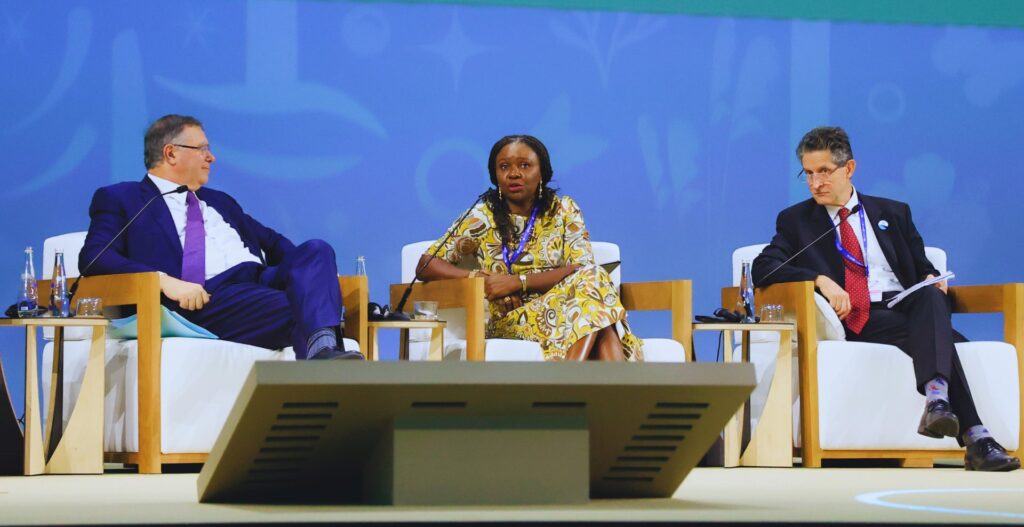NNPCL says it is committed to the 2030 zero emission goal. This is according to the company’s Executive Vice President, Upstream, Oritsemeyiwa Eyesan.
She said this during a Panel Session titled “Accelerating the Elimination of Methane Emissions & the Decarbonisation of Oil & Gas,” at the ongoing COP28 conference in Dubai.
According to a December 5 statement signed by its Chief Corporate Communications Officer, Olufemi Soneye, following the launch of the Oil and Gas Decarbonization Charter mandating reduction in oil and gas emissions, at COP28, the NNPCL said the Charter was a major opportunity for the African sub-region.
According to the statement, Eyesan said that although Africa contributes only 3% to emissions, that does not exclude the continent from the consequences of emissions.
Eyesan said:
- “I think the decarbonisation drive and the charter are not just ethical but also a strategic imperative for a major African National Oil Company (NOC) like ours. We believe this charter is an important one. We are committed to working with all stakeholders to deliver on that.
- “I assure you that we are open to working with our partners towards achieving zero-flare and methane emission reduction by 2030. This fits perfectly with our dreams, and we consider it achievable”
It is important to note that in the first half of 2023, Nigerian oil and gas companies burned about 138.7 million units of gas, which is a 10% increase from what they burned in the same period in 2022 (126.1 million units).
This led to the release of 7.4 million tonnes of carbon dioxide into the air, costing approximately $485.3 million. In Naira terms, this amounts to a loss of about N373 billion. In 2022, the emissions were lower at 6.7 million tonnes of CO2, costing around $441.2 million or about N338 billion.
Nigeria was ranked 7th globally among the top nine countries that burned the most gas in 2022, according to the World Bank’s report on global gas flaring.
Finance and tech – major challenges to emissions reduction
According to Eyesan, to achieve its near-zero methane emissions, Nigeria has since declared this decade as a Decade of Gas, which is not only geared towards producing more gas for export but also towards producing gas for the local economy and that of the entire African sub-region.
She however stated that finance and technology as the two major challenges in meeting methane emissions reduction goals in the country.
She stated further that for the highlighted challenges to be tackled, African countries need to work with partners who have the technology and finance.
What you should know
Going beyond the declaration by the NNPCL, it is important to note that in November 2022, the Nigerian Upstream Petroleum Regulatory Commission (NUPRC) established guidelines for operators in Nigeria’s upstream oil and gas sector to prevent and manage greenhouse gas emissions at both new and existing facilities.
Under the guidelines, operators need to promptly address large leaks within five working days and small leaks within 14 working days.
Operators must maintain records of their leak detection and repair (LDAR) equipment and inspection reports, with oversight from the Commission, which will issue a certificate.
Regarding Flare Requirements.
Also, flares venting gas must be fixed within 48 hours. Flare tips exhibiting sputtering or smoking should either be replaced within two years of guideline implementation or 60 days after the second year of inspection.
